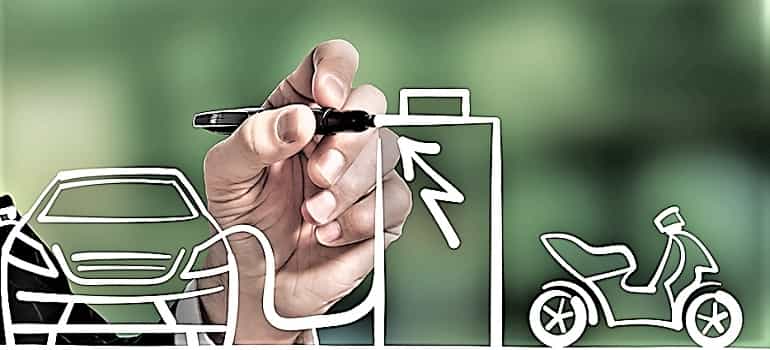Finance Minister Nirmala Sitharaman unveiled the 2023-24 Union Budget with significant updates for India’s automotive industry, emphasizing green mobility and the advancement of biogas and hydrogen production. The custom duty on imported electric vehicles (EVs) and luxury cars has been elevated by 10% to 70%, but there’s a tax exemption for imports of capital goods related to EV batteries. To gather insights and understand the view of the electric vehicle Industry we reached out to leading EV players in the market and obtained a joint response on the Budget 2023:-
Chetan Maini, Co-founder & Chairman, SUN Mobility said “I applaud the government’s continued efforts to accelerate the country’s transition to sustainable development and green growth, focusing on green fuels, energy, building practices and creating new “green” jobs besides leading to reduced carbon intensity. The announcement of ₹35,000 crore budget for green transition allocation and the proposal of zero carbon emission goal by 2070 are huge steps forward in promoting India’s progression towards green growth. However, the industry looks forward to the government to share more insights about the capex allocation to support the commercial vehicle sector as part of the green growth agenda. It is also encouraging to see the government’s decision to announce viability gap funding for battery storage solutions and continuation of lower customs duty on lithium-ion cells. The scrappage of old government vehicles and budgetary allocation towards the same, is a positive step in the direction of zero carbon emission goal. While this budget is impactful, I feel that release of the Battery Swapping Policy covering subsidies and GST rate rationalization from 18% to 5% on EV battery would have added further to the green growth agenda.”
“A largely all-encompassing inclusive budget offers something to cheer about for all sectors; emphasis on rural development – where resides the real BHARAT, and Green sustainable climate consciousness is growth focused for a bright future. The Budget will drive economic growth, create jobs and attract investments. Pushing investments in sectors such as agriculture, fishery and cattle, and supporting procurement of components for electric vehicles, and focus on clean energy and fuels like Hydrogen will significantly enhance the prospects of segments that were in need of attention,” said Ketan Mehta, CEO and Founder of HOP Electric Mobility.
Banwari Lal Sharma, CEO, Consumer Business, CarTrade Tech Ltd said ” The Union Budget 2023-2024 announced by Finance Minister Nirmala Sitharaman is progressive, prudent and growth-led, with an eye to provide impetus on the savings of the public. It is a ‘green budget’ for the automotive and mobility sectors. The sustainability measures taken through announcements on green hydrogen and other energy sectors will help in furthering the government’s target of carbon neutrality by 2070. The increased Capex outlay on energy transition is likely to spur investments and skill development in a green economy. The viability gap funding for battery energy storage systems is also likely to create critical infrastructure, while custom duty reduction on capital goods for Lithium batteries manufacturing will facilitate faster adoption of EVs. Increase in spending on infrastructure, setting up of 50 new airports and heliports, creation of 100 transport infrastructure projects are welcome moves, in addition to the central support for replacing old vehicles. All of these should drive consumption and overall demand of vehicles.”
Nagesh Basavanhalli, Executive Vice Chairman, Greaves Cotton Ltd sharing his views said “We are pleased to see ‘Green Growth’ as one of the mission-critical objectives laid out in Union Budget 2023. As India transitions towards sustainable mobility, there needs to be a strong impetus on building the sustainable mobility ecosystem with clean technologies. This will require upskilling the existing human resources to green technologies. From using clean power in component and vehicle manufacturing to charging of vehicles to battery repurposing and recycling, there is a great opportunity to building requisite clean tech infrastructure for EV’s. The investments in ‘Made in India’ EV components, besides product and innovations with give us better control of the entire carbon chain. The outlay of Rs 35,500 crores in energy transition will play a key role in accelerated transition towards an all-electric ecosystem. The mobility is sector poised to emerge as one of the prime drivers of net zero emissions. Greaves is one of the dominant players in building the EV ecosystem in India and we are strongly aligned to the ‘Green Growth’ efforts. The country’s journey towards decarbonization gets further momentum with National Green Hydrogen Mission, as the Rs 19,700 crore capital outlay will reduce dependency on fossil fuels and encourage more innovations in use cases of clean energy and renewables. Finally, the Union Budget 2023 paves the way for a favourable, positive and stable macro-economic environment with economic growth pegged at a robust 7%, doubling of per capita income, positive tax reinforcements for the salaried class, and capex allocation of 10 lakh crore. This will stimulate the economy, revive consumer sentiments, and help boost purchasing power.”
“We are quite happy to see the government’s transition towards ‘Green Growth’. The custom duty exemptions on lithium-ion batteries in particular are quite encouraging for manufacturers. This will bring more small and medium players to the forefront with the resulting reduction in costs and stronger supply chains. Budget 2023 clearly seems to be a strong step towards a less carbon-intense economy.” added Ranjita Ravi, Co-Founder of Orxa Energies.


